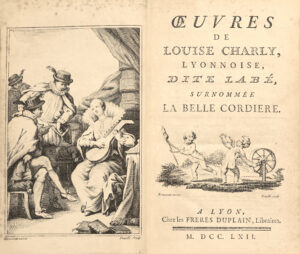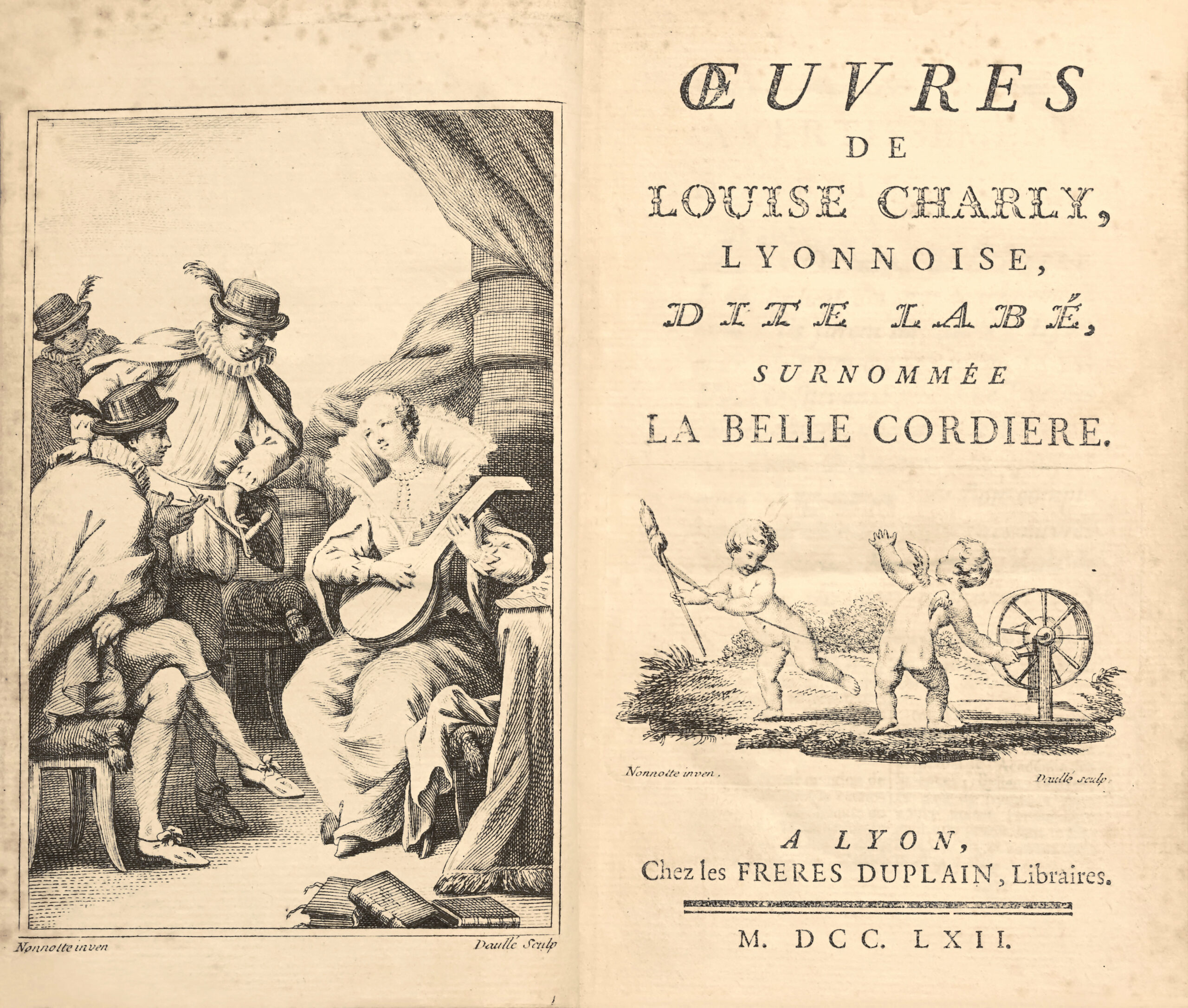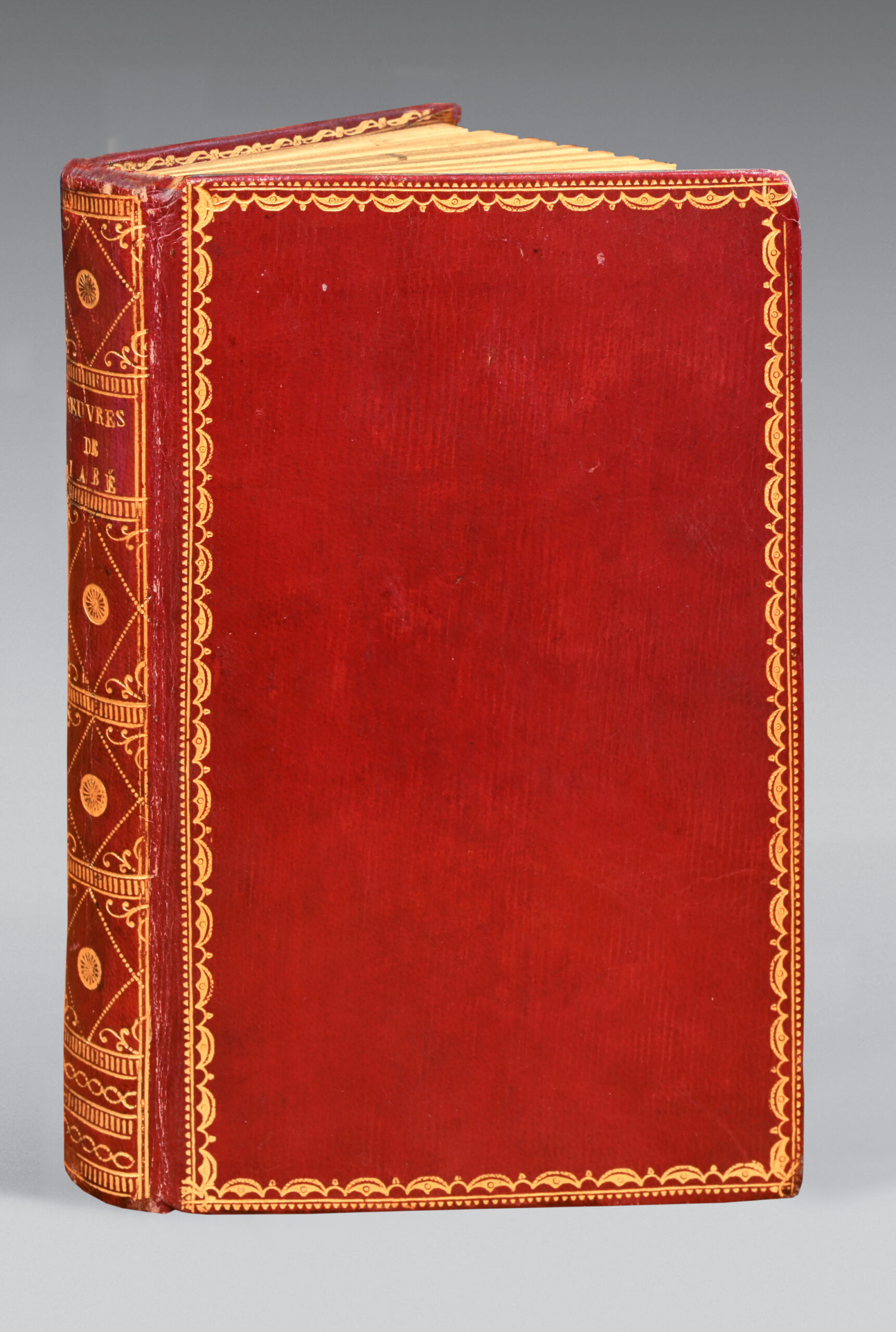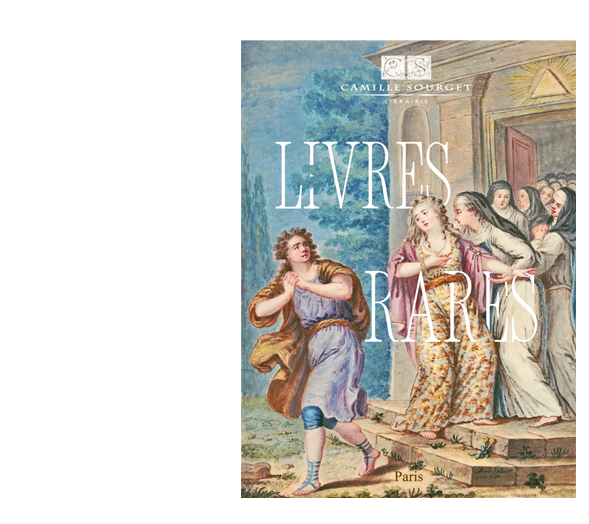Lyon, chez les frères Duplain, 1762.
Small 8vo, 1 engraved frontispiece, xxxii pp., 212 pp., full straight-grained red morocco, gilt border around the covers, decorated flat spine, inner border, gilt edges. Old binding.
150 x 93 mm.
Last old edition of the Works of Louise Labé, the first after more than two centuries of editorial silence, printed in a edition of 525 copies by Lyon bibliophile Pierre Adamoli at Aimé de La Roche from a copy of the original 1555 edition.
Brunet, Manuel du libraire, III, 709.
Around 1550, a bourgeois woman from Lyon, wife and daughter of artisan cordiers, not only claimed the right to write, but also succeeded in getting herself published, during her lifetime, by one of the most famous printers of her time.
La “Belle Cordière” (c. 1520-1566) had her Works published in 1555 by Jean de Tournes in what was then the cultural capital of the French kingdom. Italy had led the way in recognizing the talents of Petrarch’s brilliant imitators: great aristocrats like Vittoria Colona and Veronica Gambara, or upper-middle-class ladies like Gaspara Stampa and Tullia d’Aragona. In France, the tradition of the cortegiana onesta was not firmly established. When a woman of modest means dared to step out of her silence to make herself heard publicly, voices were raised to reprove behavior deemed indecent, according to the moral and social standards of the time. In the case of the “Lyonnaise Sappho”, censors did react, but on closer inspection, they were few and relatively discreet. Calvin certainly alluded to the author’s allegedly scandalous morals (he called her a common prostitute: plebeia meretrix), but he was hardly followed. Malicious poems circulated, including the venomous ode of a disappointed lover. But as early as 1555, François de Billon begged his detractors not to take seriously those who, “out of envious malice”, denigrated a woman they had never been able to equal.
In fact, as the history of the immediate reception attests, the new collection was to arouse almost universal enthusiasm, so much so that some twenty well-known writers agreed to insert a collective tribute to the glory of their young colleague in the 1555 collection (“Escriz de divers poëtes à la louenge de Louize Labé Lyonnoize“, Ed. Rigolot, p. 142 sq.).
Precious copy of this very rare edition, printed in only 525 copies, preserved in its old red morocco binding.
From the library Pierre de St Victor with ex libris.



